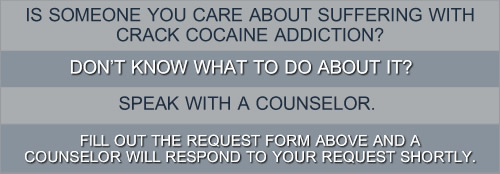
Crack Cocaine: What Is Withdrawal
Crack cocaine is produced from cocaine powder and is much more available than cocaine. Crack is smoked in glass pipes and is usually sold in small rocks that are about 0.2 grams each. Crack cocaine is a very cheap drug with rocks going for as little as two dollars and in 2004 was the second most abused illegal drug in America after marijuana. Crack users experience a rush of euphoria to the brain a few seconds after smoking crack. It goes into the bloodstream from the lungs.
Crack cocaine is a big problem in urban areas but demand seems to have waned over the past ten years. Many metropolitan cities and urban centers still have a crack use problem, like Baltimore and New York City.
What Are The Effects of Crack Cocaine?
Other than causing euphoria, using crack cocaine speeds up your heart rate and affects your blood pressure. These two things combined can cause cardiac arrests and strokes. Excessive use of cocaine or crack cocaine can cause the heart to beat so fast that it virtually stops by itself. Cocaine use is one of the leading causes for heart attacks in young people without a history of heart disease.
The user might feel excessively confident and start exhibiting strange behavior, like poor sleeping habits, difficulty managing money and an unexplainable need for it in which they might pawn or steal, and many other social, financial and work-related consequences.
What Are The Withdrawal Effects for Crack Cocaine?
Crack cocaine is not a physically addictive drug. However, it is very psychologically addictive. All the withdrawal symptoms that an user goes through are, therefore, strictly psychological. The user will feel certain emotions like anxiety but since he or she is not experiencing physical withdrawal symptoms they might consider that they are not addicted or dependant on the drug. This is false as psychological and physical addiction both exist.
The user might start to feel very tired and depressed after he or she stops taking crack cocaine. The user could start to become increasingly moody and irritable. The user might also experience anxiety, depression and in some extreme cases paranoia. After this, the user night start to feel like they have very low enthusiasm, might have difficulty sleeping or conforming to a sleep schedule, the user might have difficulty concentrating in general and very variable different energy levels and moods. The user might also have increased appetite, unpleasant and vivid dreams, fatigue, itching, nausea and in some cases vomiting, insomnia and in some cases thoughts of suicide.
The user will also feel cravings to take the drug. Users may turn to wanting to consume to deal with the unpleasant effects that come along with withdrawal, and this frequently causes users to get into a cycle in which they want to quit but they are not able to deal with the withdrawal symptoms. This is why drug recovery must be done after the supervision of a mental health professional that has experience dealing with treating the complicated issue of addiction.
- Questions?
